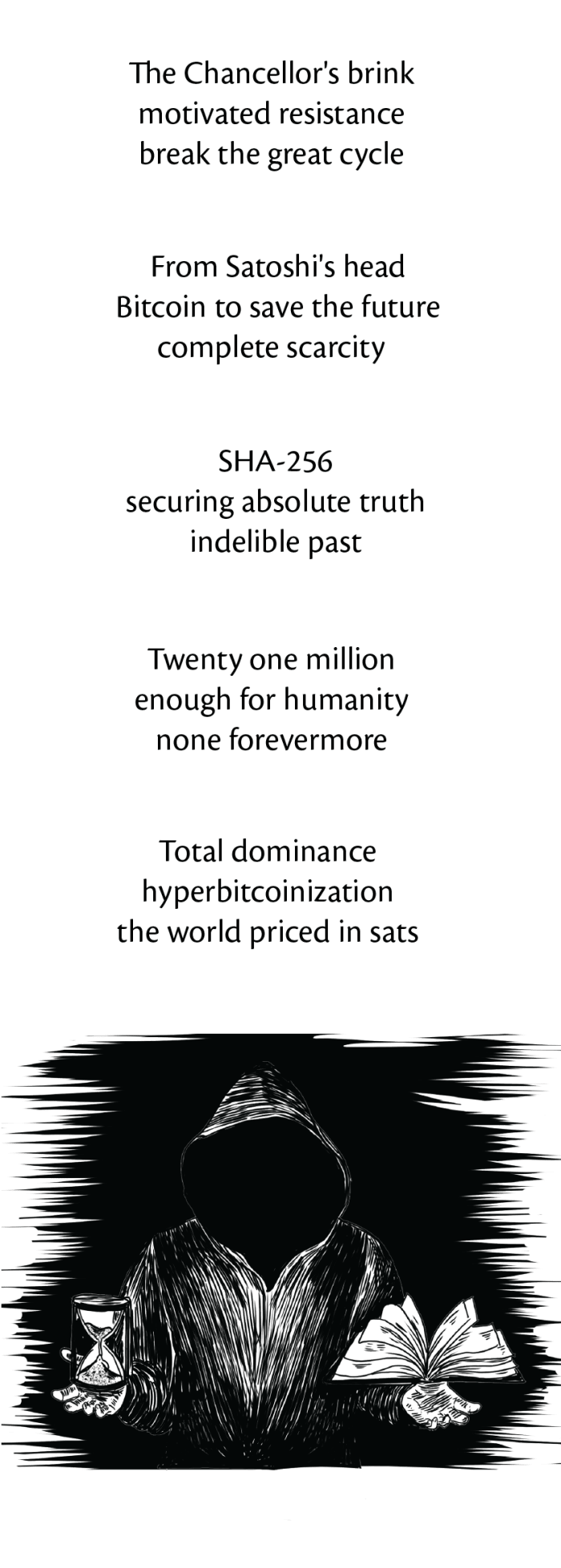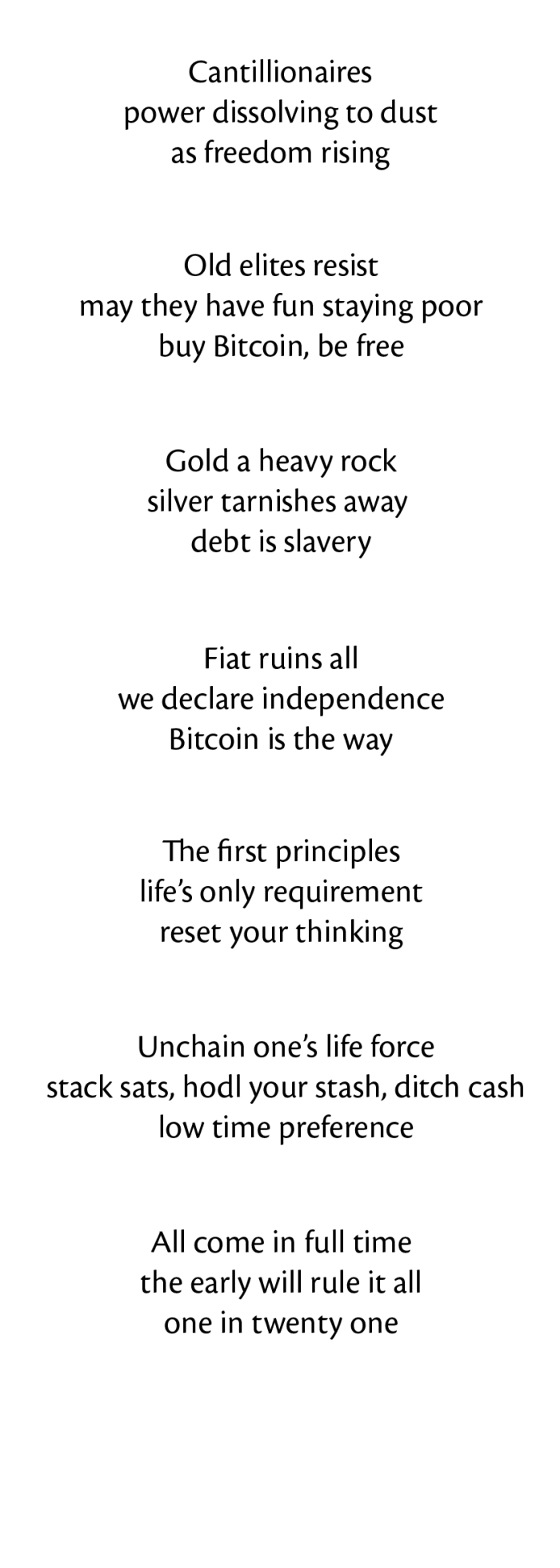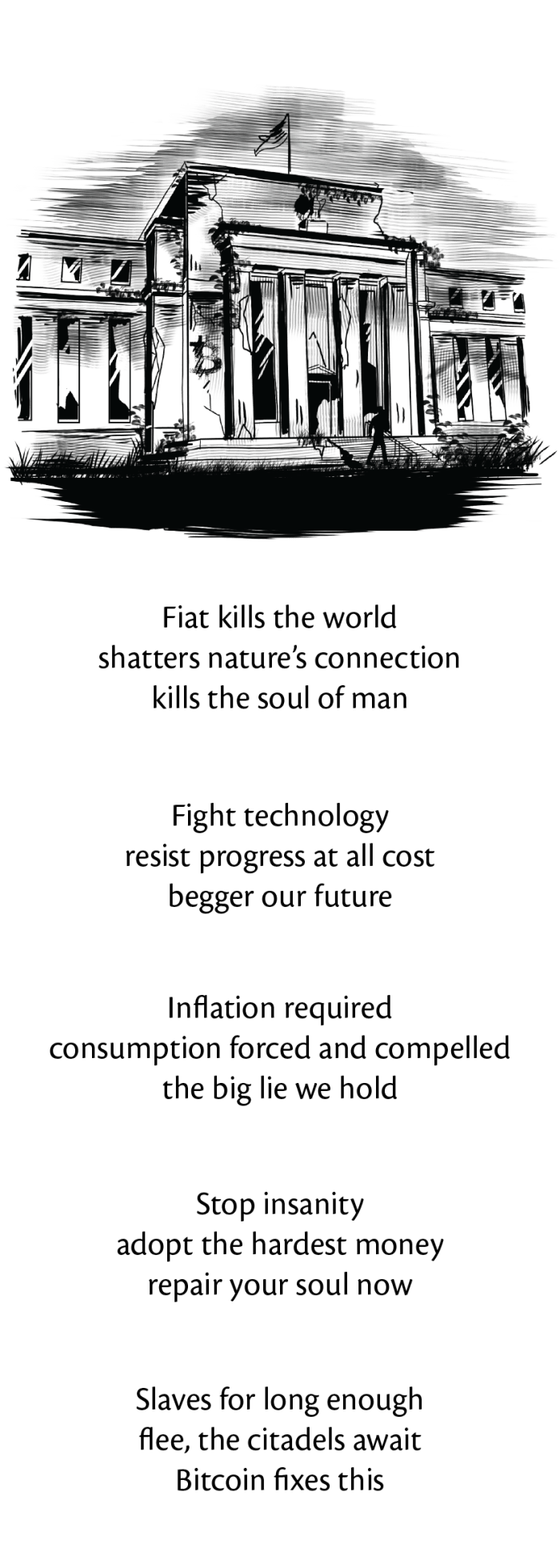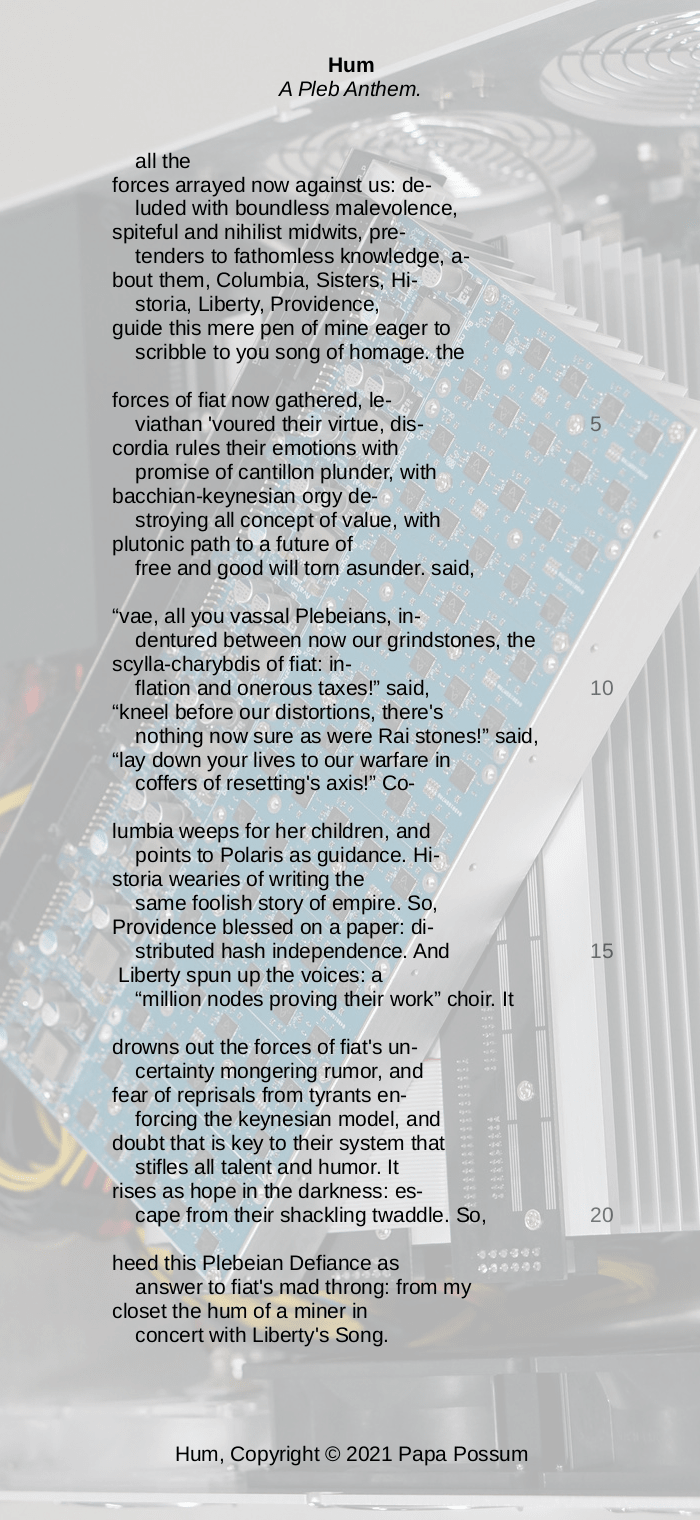Bitcoin Community Projects Freedom – Bitcoin Magazine: Bitcoin News, Articles, Charts, and Guides
Colin Crossman:
Aspirational projects like the Declaration of Monetary Independence are designed to engender strong feelings — that’s part of their power. Much contemporary art was made about the American Independence movement, such as William Blake’s “America, A Prophecy,” and Philip Freneau in both “A Political Litany” and “American Liberty.” Such works help communicate the overall message of the movement to a broader audience, and often do a better job conveying the emotionality of the movement than the base layer argument.
We can see much artistic output coming from the broad Bitcoin community, with a great output of audio and visual works. For me, when I was exposed to early versions of the Declaration of Monetary Independence project, I was moved to write a couple of haiku. Upon hearing that they were looking for more of such work to assist with the project, I decided that this would be my contribution to it.
A few notes about the below. Each haiku is intended to stand on its own, while also being a part of a larger story. One apparent departure from the norm, haiku generally evokes nature. Here, while I do evoke nature, I also include aspects of Bitcoin’s construction (SHA-256), and memes. To my mind, these are part of Bitcoin’s nature, and so in evoking these, I believe these remain true to the spirit of English language haiku.
Rick Poach:
A little over a month ago, on a whim, I started posting Bitcoin/Econ themed limericks to a Telegram board of Denver Bitcoiners. The limericks were to form: humorous and unserious snippets of verse. I didn’t think much about them other than the fact that they were coming to mind in the first place.
For nearly twelve years, I have written what I label as political satire (sarcasm) in verse. However, after what, in my opinion, was a false flag “insurrection,” whatever inspiration to write that I might have had remaining had dried up. Any attempt that I made at writing felt like, and was, a half-hearted effort: the absurdities were so apparent, what more could my sarcasm do to reveal it?
With the exception of a couple of half-hearted pieces, I had stopped writing for almost a year.
However, during that year, two interesting things happened to me. The first was that, in April, Colin Crossman introduced me to Bitcoin. I quickly went down the rabbit hole, as I almost immediately intuited that eventually, “Bitcoin fixes,” the absurdist forces which have seized power. The second was that, about a month ago, Mark Maraia read those throwaway limericks that I had posted, and asked me to write some verse in support of the Declaration of Monetary Independence.
The result of those two interesting things is the piece, “Hum.”
I would like to thank both Colin and Mark for their unknowing contribution to “Hum”. I would not have had the inspiration to write it without them.
If needed, here is a key to better understand “Hum”:
- “Hum” is written in dactylic hexameter – also known as heroic meter. Most verse in English are in rhythms of two (iambic), however “Hum” is in rhythms of three (dactylic).
- Over the years of writing satire in verse, I have built up a kind of mythos: recurring characters that symbolize important themes. Those thematic characters in “Hum” are:
- The Four Sisters – Historia, Liberty, Providence, and Columbia.
- Historia – The Goddess of the Pen, forever marking down the deeds of “those who fight for liberty and those who rule by fear.”
- Liberty – The Goddess of the Song of Freedom which can always be heard, even if in the distance, in the darkest times
- Providence – The Goddess of the Storm, bringing just what is needed right when it is needed.
- Columbia – The Goddess of the Promise of Independence that is supposed to be America.
- Leviathan – The Hobbesian nightmare of an all pervasive state which must be surrendered to and which must be fed.
- Polaris – The single point of reference to navigate by in uncertain times: “this: each word from our ruling class is guaranteed a lie.”
This is a guest post by Rick Poach And Colin Crossman. Opinions expressed are entirely their own and do not necessarily reflect those of BTC, Inc. or Bitcoin Magazine.



